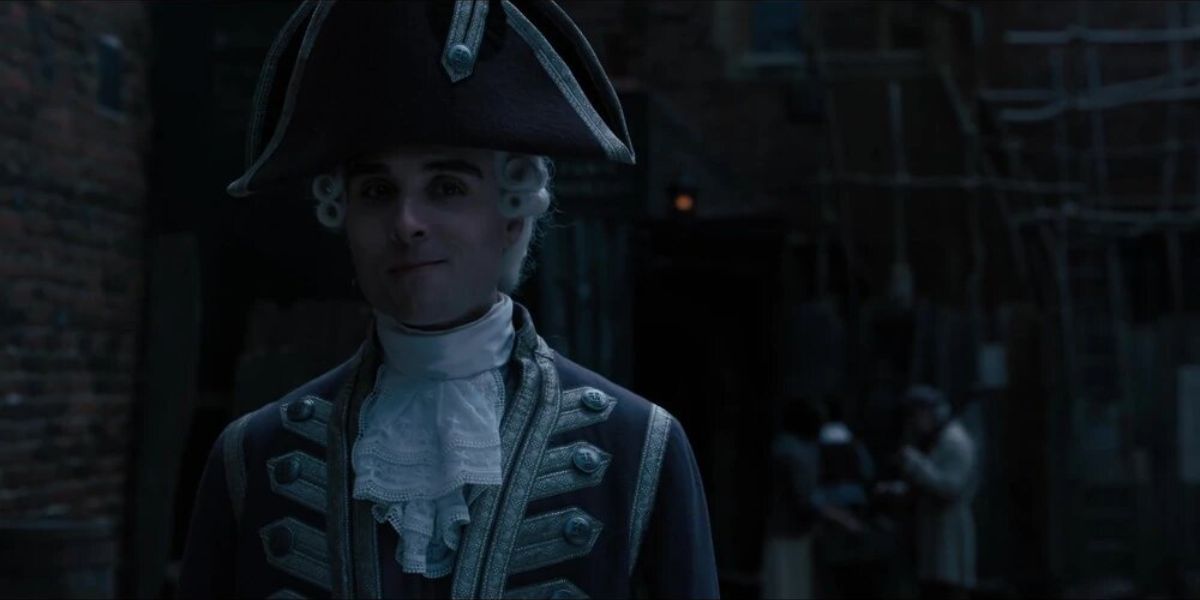The footmen in the Netflix series "Bridgerton" have emerged as emblematic figures of grace and servitude, capturing the essence of the Regency era. Set against the backdrop of 19th-century aristocratic England, these characters play a pivotal role in the households of the elite, offering viewers a glimpse into the social intricacies of the time. This article delves into the responsibilities, symbolism, and historical context of footmen as portrayed in "Bridgerton," shedding light on their importance both within the narrative and as historical figures.
The portrayal of footmen in "Bridgerton" provides a captivating insight into the rigid class structures that defined the Regency era. These young men, entrusted with various duties, were more than just servants; they were essential to maintaining the household's reputation and operational efficiency. Through this article, we will explore the defining traits of footmen in the series, their daily routines, and their contributions to the series' aesthetic and storyline, further enriching our understanding of this fascinating period.
Additionally, we will analyze the historical accuracy of the show's depiction of footmen and compare it to real-life practices of the time. By examining both fictional and factual perspectives, readers will gain a comprehensive understanding of the role of footmen in the Regency era, as illustrated through the lens of "Bridgerton." Let us embark on a journey to unravel the world of Bridgerton's footmen.
Read also:Exploring The Financial Empire Of Ben Baller A Journey Of Luxury And Success
Table of Contents
- Biography of Bridgerton Footmen
- Understanding the Role of a Footman
- The Role of Footmen in Bridgerton
- Historical Context of Footmen
- Key Characteristics of Footmen
- Daily Duties of Footmen in Bridgerton
- The Significance of Footmen in Society
- Conclusion
Biography of Bridgerton Footmen
In the "Bridgerton" series, footmen are depicted as young, elegant men who serve the Bridgerton family and other noble households. Though they may not be central characters, their presence is crucial in setting the tone and atmosphere of the scenes they inhabit. These characters, though often unnamed, embody the professionalism and grace expected of servants in aristocratic households.
| Name | Age | Role | Key Traits |
|---|---|---|---|
| Simon Basset (The Duke of Hastings) | 30 | Nobleman | Charismatic, brooding, honorable |
| Anthony Bridgerton | 28 | Eldest Bridgerton | Responsible, protective, ambitious |
| Various unnamed footmen | Varied | Servants | Polite, attentive, discreet |
Understanding the Role of a Footman
A footman is a servant who performs a variety of duties within the household of a noble or affluent family. Their responsibilities typically include serving meals, opening doors, delivering messages, and maintaining the household's appearance. Dressed in formal livery, footmen serve as a visual representation of their employer's wealth and status.
The Evolution of the Footman Role
The role of footmen has undergone significant changes throughout history. Initially, footmen were symbols of wealth and prestige, reflecting the luxurious lifestyle of the aristocracy. In the Regency era, their duties expanded beyond mere service, making them indispensable to the smooth functioning of noble households. Their presence was as important as the families they served, enhancing the grandeur and elegance of the era.
The Role of Footmen in Bridgerton
In "Bridgerton," footmen are not merely background characters but integral to the series' narrative. Their duties include:
- Serving meals during extravagant dinners
- Assisting in the organization and execution of social events
- Maintaining the household's pristine appearance
- Acting as intermediaries between the family and the outside world
Historical Context of Footmen
The historical backdrop of footmen in the Regency era offers a profound insight into the social hierarchy of the time. Often young men from modest backgrounds, footmen sought employment in wealthy households to elevate their social standing. Their attire, consisting of tailored coats and knee breeches, was meticulously designed to signify their role within the household. This visual distinction reinforced the divide between the upper classes and their servants.
Social Structure and Class Dynamics
Within the societal framework of the Regency era, footmen were indispensable in maintaining the appearance of wealth and status. Their presence at social gatherings not only facilitated service but also elevated the overall experience, showcasing the family's affluence. Footmen were more than just servants; they were crucial in sustaining the image and reputation of the households they served.
Read also:Exploring Jude Laws Journey And Financial Success In 2024
Key Characteristics of Footmen
The footmen in "Bridgerton" embody several defining traits that enhance their roles:
- Politeness: Footmen are always courteous, adhering to the decorum expected in high society.
- Discretion: As privy to the family’s secrets and scandals, their ability to remain discreet is essential.
- Physical Appearance: Often depicted as handsome and well-groomed, their appearance contributes to the aesthetic appeal of the household.
Daily Duties of Footmen in Bridgerton
The daily responsibilities of footmen in "Bridgerton" are extensive and varied, encompassing:
- Preparing the dining room for meals
- Serving food and drinks during meals
- Running errands for the family
- Assisting with the dressing and grooming of household members
The Significance of Footmen in Society
Footmen occupy a significant place in the social fabric of the "Bridgerton" world. Beyond their practical functions, they contribute to the atmosphere of elegance and sophistication that defines the series. Their portrayal reflects the intricate dynamics of class relationships and the importance of servitude in sustaining the lifestyles of the upper classes. Through their roles, viewers gain a deeper appreciation of the societal norms and expectations of the Regency era.
Conclusion
In summary, the footmen in "Bridgerton" serve as compelling representations of the interplay between service and status in the Regency era. Their roles are not merely functional but deeply rooted in the social hierarchy of the time. Understanding the significance of footmen is vital for grasping the broader themes of class and society explored in the series. We encourage readers to engage with this historical perspective and share their thoughts on the portrayal of footmen in "Bridgerton."
Feel free to leave your comments or share this article with others who may be interested in the captivating world of "Bridgerton" and its characters.
Thank you for reading, and we hope to see you back for more insights into the rich narratives of historical fiction!


![Eloise & Footman John Light me up [Bridgerton S2] YouTube](https://i.ytimg.com/vi/O7ytM-uRvPI/maxresdefault.jpg)